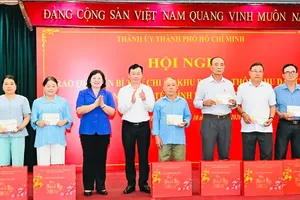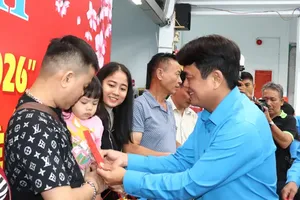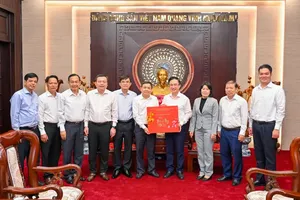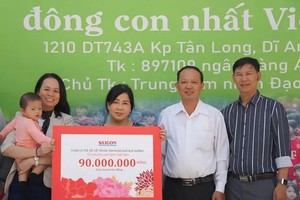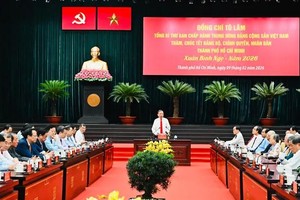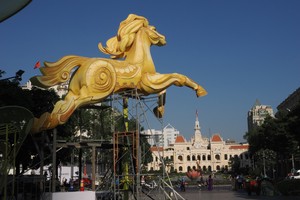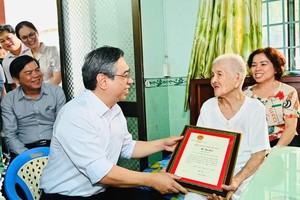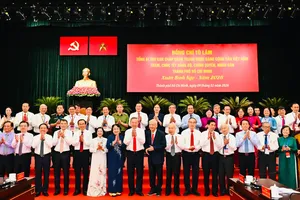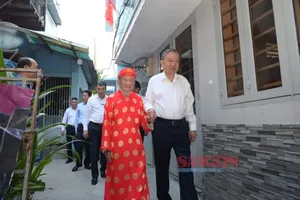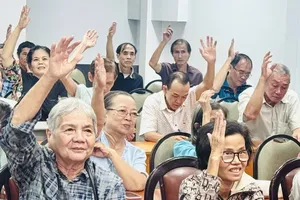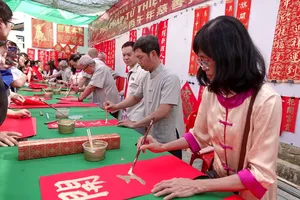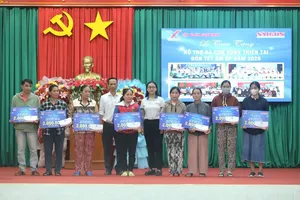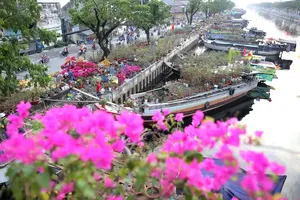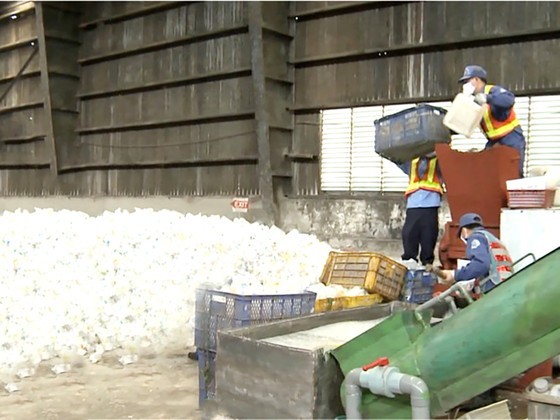 |
Non-hazardous medical waste recycling plant at Ho Chi Minh City Urban Environment Company Limited |
Presently, the rate of biodegradable organic solid waste in domestic solid waste (MSW) in Ho Chi Minh City ranges from 59.2 percent to 74.3 percent, said IER.
Investors are not interested in pouring investment into recycling plants
According to the Department of Natural Resources and Environment of Ho Chi Minh City, roughly 9,000-9,500 tons of domestic solid waste, commonly known as trash or garbage, are generated by city dwellers a day. However, around 31 percent of domestic solid waste is composted and recycled whereas the rest is landfilled.
Two Ho Chi Minh City-based solid waste treatment complexes, 614-ha Da Phuoc (Binh Chanh outlying district and 687-ha Phuoc Hiep in Cu Chi suburb for waste treatment. In the long term, the city’s lack of land is the biggest constraint in disposing of MSW into landfills. Therefore, increasing the rate of recyclable waste is a solution to reduce pressure on increasing land funds for landfill activities, especially when the city increasingly lacks land funds.
Dr. Nguyen Thanh Hung from the Institute of Environment and Resources under the National University of Ho Chi Minh City recognizes that the opportunities and potential for the recycling field in Ho Chi Minh City are very high because the amount of MSW will continue to increase in the coming time due to the population growth, economic development and rapid urbanization. Paper packaging, metal, plastic bottles, glass, rubber, and household appliances can be recycled.
However, waste classification at households in Ho Chi Minh City is still not synchronous and drastical, leading to recyclable components in MSW containing many impurities, and not meeting input standards as raw materials for production and recycling. This has discouraged investors due to high recycling costs and inefficient production.
Waste classification at source does not meet the requirements because many households have not proactively classified it. Moreover, local administrations have not well done in propaganda and a lack of synchronization in carrying out the tasks between districts.
In addition, the city does not have strong enough support for recycling activities; plus, there is still a lack of resources for recycling such as capital, highly qualified human resources, specialized equipment, and necessary and appropriate preferential policies for businesses so that firms can invest more in recycling.
On the other hand, most purchases and sales of scrap and recyclable materials take place in the informal sector, so state management agencies often do not clearly understand the requirements for the type and quantity of materials that can be recycled from MSW; subsequently, they can’t develop good planning for investment appeal in the recycling sector.
Promotion of waste classification in households
Currently, Ho Chi Minh City recycles MSW in the informal market and the official market. The informal recycling market is mainly small establishments, specializing in recycling scraps such as paper, plastic, metal, and glass. Most recycling facilities are concentrated in districts 5, 11, Binh Tan, and Binh Chanh.
Generally, recycling facilities of the informal market have outdated technology and often do not ensure environmental hygiene during the operation of recycling activities, affecting the health of workers and surrounding communities. Meanwhile, just one or two registered companies under the management of state agencies operate the official recycling market. Many opinions say that the lack of official recycling facilities resulted in difficulties in the recycling market in Ho Chi Minh City.
Dr. Nguyen Thanh Hung said that to facilitate recycling activities, the infrastructure system for collecting, transporting, recycling and treating solid waste needs more investment to keep up with the pace of the city’s development. It is necessary to reorganize the scrap collection and recycling system of unions, scrap purchasing cooperatives and associations of scrap recycling facilities.
This will help the city better manage the flow of recycled materials from MSW citywide. At the same time, waste recycling facilities that fail to meet environmental protection requirements in residential areas should be removed to other places. The city will call for investment and encourage the development of industries that support recycling activities as well as have preferential investment policies for businesses in the field of waste recycling.
Vice Chairman of the Vietnam Association for Conservation of Nature and Environment Associate Professor Phung Chi Sy said that the city needs to synchronously apply important and effective solutions for the growth of the recycling market. Most importantly, the city should disseminate propaganda about waste classification in households by continuing to raise people's awareness through mass media channels and applying penalties for administrative violations according to the Government’s Decree 45.
In addition to the solution for the classification of household waste, the city needs to have policies to promote the market for recycling products, promote the application of economic tools for waste management in the direction of subsidizing environmentally friendly products and impose heavy taxes on products harmful to the environment such as plastic bags that are difficult to decompose. Last but not least, the city should establish units to link companies and provide information on the market for recycled products and materials.
